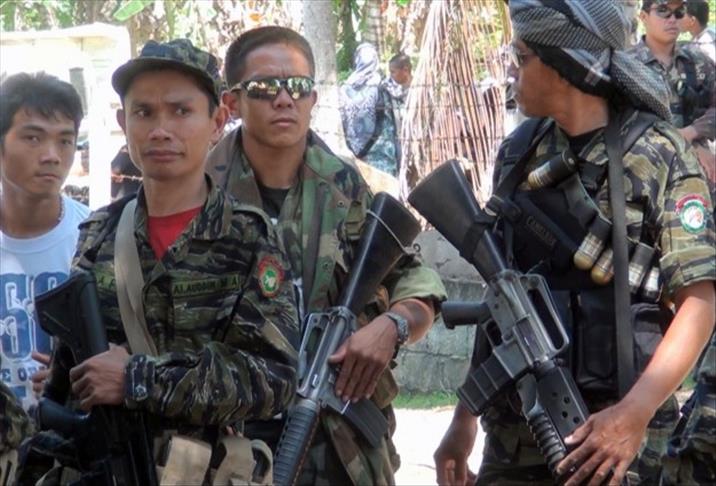
By Hader Glang
ZAMBOANGA CITY, Philippines
Negotiators from the Philippine government and the country's one time largest Muslim rebel group met in the Malaysian capital this weekend to discuss a disarmament process which is key to a peace deal that many hope will end insurgency in the Philippine's south.
The deal between the government and the Moro Islamic Liberation Front was signed March 27 and aims to bring to a close 17 years of negotiations and end a decades-old armed conflict in the southern area of Mindanao -- the second largest and southernmost major island in the Philippines -- while granting Muslim areas greater political autonomy.
But before the bill is passed next year, the former rebel group is to decommission its weapons.
At the start of the three-day special meeting -- expected to end Monday September 29 -- the government’s chief negotiator, Miriam Coronel-Ferrer, said the normalization process will be implemented simultaneously with the political process, according to a press statement.
Coronel-Ferrer said both parties had welcomed the three foreign experts who will sit on "the International Decommissioning Body" that shall oversee the process of decommissioning the former rebel forces and weapons.
The three men -- Ankara-based Ambassador Haydar Berk from Turkey, Major Muhammad Aiman Syazwi Bin Haji Abdul Rahim from Brunei and Jan Erik Wilhelmsen from Norway -- will be joined by four local experts to complete the seven-member body, added Coronel-Ferrer.
"We thank the governments of Brunei, Turkey and Norway for providing us with the valuable services of their respective experts," she said.
"Decommissioning is a delicate and difficult component of any peace settlement. It must be done effectively and sensitively. It is an affirmative support to the normalization process and will contribute to advancing collective security in the future Bangsamoro region and the country as a whole."
Among the functions performed by the decommissioning body will be the conducting of inventory, verification and the validation of Bangsamoro Islamic Armed Forces' members, arms and weapons and the development and implementation of a schedule of decommissioning of forces.
It will also plan, design, and implement techniques and technologies for weapons collection or retrieval, transport, and storage and putting weapons beyond use in accordance with the agreement of the parties and report on the progress of its work and submit its report to the government and Moro Islamic Liberation Front panels.
Aside from the international decommissioning agency, two other bodies integral to the normalization process include the Joint Normalization Committee -- which will coordinate the different normalization processes and mechanisms -- and the Transitional Justice and Reconciliation Commission -- which will undertake a study and recommend to the panels the appropriate mechanisms for transitional justice and reconciliation.
The Transitional Justice and Reconciliation Commission is preparing to hold two events in early October in Cotabato City and in the capital, Manila, to introduce the commission to the public and begin the process of consultations.
It is tasked with studying and recommending to the Moro Islamic Liberation Front panels the appropriate mechanisms to address "legitimate" grievances of the Bangsamoro people, historical injustices, and human rights violations and marginalization towards healing and reconciliation.
Coronel-Ferrer had said that “the first order of business” for the meeting would be for the former rebel group to submit a list of weapons and combatants.
Military estimates place the strength of the group at 10,000 soldiers. The group has not disclosed the size of its force or the number of weapons in its arsenal.
Coronel-Ferrer said there was enough "goodwill" to push through with normalization after a bill that will grant the country’s Muslim minority self-rule was submitted to Congress earlier this month.
Legislators have said the Bangsamoro bill had bipartisan support and would be passed early next year, giving Philippine President Benigno Aquino III time to set up an autonomous government before his term ends in mid-2016.
*Anadolu Agency correspondent Tutku Senen contributed to this story from Ankara.
Anadolu Agency website contains only a portion of the news stories offered to subscribers in the AA News Broadcasting System (HAS), and in summarized form. Please contact us for subscription options.

